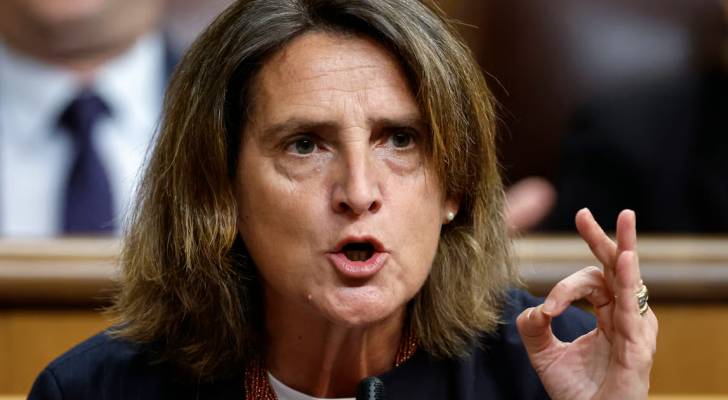Teresa Ribera (Credit: Getty Images)
Top EU official: Genocide in Gaza exposes Europe’s failure to act
A senior European Union official has described 'Israel’s' campaign in Gaza as a genocide, marking the harshest rebuke yet from within Brussels against the war.
Teresa Ribera, executive vice president of the European Commission, said the bloc has failed to respond collectively to the devastation in Gaza, where Palestinians face mass displacement, widespread hunger, and mounting casualties.
“The genocide in Gaza exposes Europe’s failure to act and speak with one voice, even as protests spread across European cities and 14 UN Security Council members call for an immediate ceasefire,” Ribera told students at Sciences Po on Thursday morning.
Ribera, who represents Spain on the Commission, has long been one of the most outspoken critics of 'Israel’s' actions. But this is the first time she has publicly used the term “genocide” to describe the assault.
Her remarks come amid rising pressure on 'Israel' from the international community ahead of the UN General Assembly in New York later this month. Belgium announced this week that it will join several countries in recognizing the state of Palestine and imposing sanctions on 'Israel'. France has also pledged to back Palestinian statehood recognition, following earlier moves by Spain and Ireland in 2024.
Despite those steps, the EU remains split over whether to sanction 'Israel', with Germany and Hungary resisting efforts to suspend the bloc’s trade agreement with Tel Aviv. Until now, most European leaders and institutions have avoided using the term “genocide,” even as the International Court of Justice continues to hear a case brought by South Africa accusing 'Israel' of exactly that.
The debate intensified after a group of leading genocide scholars released a resolution earlier this week, concluding that 'Israel’s' conduct in Gaza fits the legal definition of genocide.
Ribera has previously voiced her frustration with the EU’s hesitation. In an interview with POLITICO last month, she urged the bloc to consider suspending its Association Agreement with 'Israel' and suggested countries unwilling to support such a move should abstain rather than block it.
At Sciences Po, Ribera stopped short of outlining a concrete policy shift but tied the crisis in Gaza to wider global instability, from Russia’s invasion of Ukraine to climate threats.
“All of these things are not just sectoral or individual threats but also challenges to the fundamental freedoms and rights upon which our societies and the relations among us have been built,” she said. “Staying silent in the face of injustice … should not be something to accept.”




